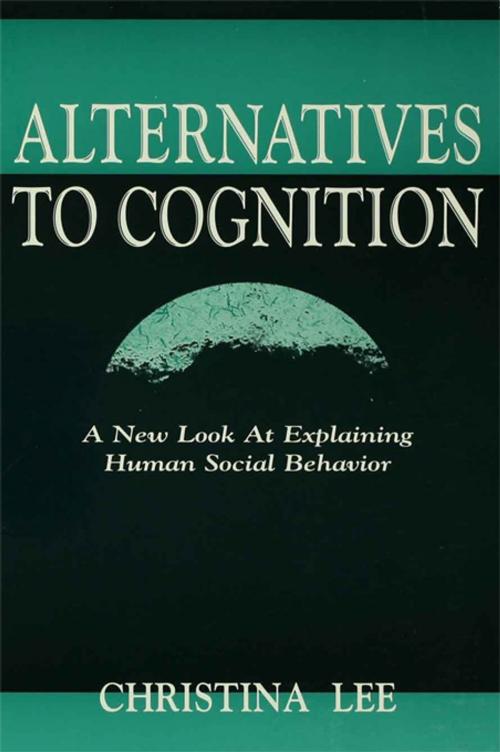Alternatives to Cognition
A New Look at Explaining Human Social Behavior
Nonfiction, Health & Well Being, Psychology, Social Psychology| Author: | Christina Lee | ISBN: | 9781134805778 |
| Publisher: | Taylor and Francis | Publication: | June 17, 2013 |
| Imprint: | Psychology Press | Language: | English |
| Author: | Christina Lee |
| ISBN: | 9781134805778 |
| Publisher: | Taylor and Francis |
| Publication: | June 17, 2013 |
| Imprint: | Psychology Press |
| Language: | English |
In this provocative book, Christina Lee takes a consciously critical approach to the apparently unchallenged principle that conscious thought is the cause of all human behavior. Without becoming polemical or destructive, she reconsiders a wide range of issues in mainstream American and European social psychology.
Suitable for an international audience, the book deals with issues in mainstream American and European social psychology. It assumes some familiarity with contemporary social and applied psychology, and would be appropriate as a text or supplementary reading for senior undergraduate and postgraduate courses in social psychology and psychological theory, although it is also written with an academic research audience in mind. While it is written largely for psychologists, it would also be of interest to academics from other social-science disciplines with a general interest in explanations of individual social behavior.
In this provocative book, Christina Lee takes a consciously critical approach to the apparently unchallenged principle that conscious thought is the cause of all human behavior. Without becoming polemical or destructive, she reconsiders a wide range of issues in mainstream American and European social psychology.
Suitable for an international audience, the book deals with issues in mainstream American and European social psychology. It assumes some familiarity with contemporary social and applied psychology, and would be appropriate as a text or supplementary reading for senior undergraduate and postgraduate courses in social psychology and psychological theory, although it is also written with an academic research audience in mind. While it is written largely for psychologists, it would also be of interest to academics from other social-science disciplines with a general interest in explanations of individual social behavior.















